|
|
|
|
11th COGNO Annual Scientific Meeting
Targeting survival: living well with brain cancer in the era of precision treatments
Sunday 7th October - Tuesday 9th October 2018
Brisbane Convention & Exhibition Centre, Queensland, Australia
INTERNATIONAL SPEAKERS
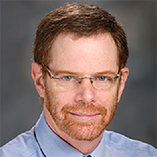 Prof Mark Gilbert MD Prof Mark Gilbert MD(Attendance supported by Cure Brain Cancer Foundation sponsorship)
Chief and Senior Investigator of the Neuro-Oncology Branch
CCR Deputy Director
Center for Cancer Research, National Cancer Institute
USA
Dr. Gilbert is a senior investigator and chief of the Neuro-Oncology Branch (NOB), which is a collaboration between NCI and the National Institute of Neurological Disorders and Stroke (NINDS). His vision is to build a highly collaborative, robust translational research program centred on finding treatments for brain and other central nervous system tumours where basic research observations will be rapidly translated into pre-clinical testing and then hypothesis-based clinical research trials, including important correlative studies.
Dr. Gilbert's research interests centre on developing new treatment strategies for patients with malignant primary brain tumours.
|
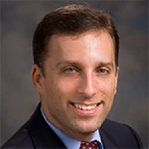 Prof Erik Sulman MD PhD Prof Erik Sulman MD PhD(Attendance supported by AbbVie sponsorship)
Professor and Vice Chair of Research, Department of Radiation Oncology
Co-Director of Brain Tumor Center
Perlmutter Cancer Center
NYU Langone Medical Center
USA
Dr. Erik Sulman is a radiation oncologist focused exclusively on the treatment of patients with brain tumours. He is the Vice Chair of Research and Co-Director of Brain Tumor Center at the Perlmutter Cancer Center. Dr. Sulman is internationally recognized for his biomarker efforts and currently serves as the Translational co-Chair of the largest clinical trials for patients with glioblastoma in the United States. He has authored on more than 100 peer reviewed publications and directs an NIH-funded translational research laboratory conducting biomarker and glioma stem-cell research. Dr. Sulman currently serves as the Radiation Oncology Board Member to the Society for Neuro-Oncology.
|
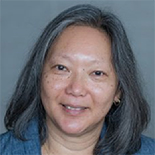 Prof Susan Chang MD Prof Susan Chang MD(Courtesy of the 2018 Sydney Cancer Conference)
Professor in Residence and Vice Chair of Neurological Surgery
Lai Wan Kan Endowed Chair
Director, Division of Neuro-Oncology
Program Leader, UCSF Comprehensive Cancer Center
Director, UCSF Neuro-Oncology Gordon Murray Caregiver Program
Co-Director of the Sheri Sobrato Brisson Brain Cancer Survivorship Program
Principal Investigator, Brain Tumor Research Center
University of California San Francisco, USA
Dr. Chang is the Director of the UCSF Division of Neuro-Oncology and an internationally recognized leader in the field of neurological malignancies. She specializes in the treatment of adults with brain tumours, including glioblastomas and meningiomas.
Dr. Chang’s research expertise is in clinical trial design and the development of novel therapies and imaging biomarkers for brain tumours. She is involved in more than 20 active clinical trials that evaluate the wide spectrum of therapeutic treatments, including chemotherapy, targeted agents, immunotherapy, and convection-enhanced delivery of novel agents.
Dr. Chang is especially dedicated to improving the experience of her patients and their families, with a particular focus on increasing quality of life. She is the founder and Director of the UCSF Neuro-Oncology Gordon Murray Caregiver Program, which provides resources and support to the caregivers of brain tumour patients. She is also the co-Director of the Sobrato Brisson Brain Cancer Survivorship Program focused on comprehensive survivorship care for brain tumour patients.
Dr. Chang is currently is the site PI of an NIH-funded Adult Brain Tumor Consortium and a member of the Brain Malignancy Steering Committee and Chair of the Developmental Therapeutics Study Section at the NIH. She is also a Program Leader for the UCSF Comprehensive Cancer Center. She was a past president of the Society for Neuro-Oncology as well as a member of the Board of Scientific Counselors for the NCI.
|
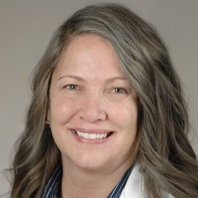 Dr Terri Armstrong PhD ANP-BC FAAN FAANP Dr Terri Armstrong PhD ANP-BC FAAN FAANP
(Courtesy of Brain Tumour Alliance Australia and Mark Hughes Foundation)
Senior Investigator of the Neuro-Oncology Branch
Center for Cancer Research, National Cancer Institute
USA
Dr. Armstrong obtained her master's in oncology from The Ohio State University and her Ph.D. from the University of Texas Health Science Center. She has worked iin the field of neuro-oncology since 1992, and has held faculty positions at Emory University, M.D. Anderson Cancer Center, and the University of Texas Health Science Center School of Nursing, where she held the school’s prestigious Dunn Distinguished Professorship in Oncology Nursing. She has maintained a clinical practice in neuro-oncology as well as research faculty positions with a focus on clinical outcomes assessment and exploring clinical and biologic predictors of toxicity and symptoms. She has received numerous research grants from philanthropy, professional associations, and was awarded an NIH R01 grant developing prediction models of toxicity. She has published 100 manuscripts in peer-reviewed journals and over 15 book chapters on the care of patients with central nervous system tumors in addition to presenting on a regional, national and international level. She is currently Vice President of the Society for Neuro-Oncology and Quality of Life representative and chair on several studies in cooperative groups including Alliance Oncology and the NRG Oncology Research Group.
|
AUSTRALIAN SPEAKERS
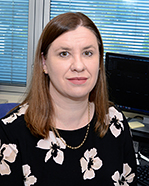 A/Prof Victoria Atkinson A/Prof Victoria Atkinson
A/Prof Victoria Atkinson is a Senior Staff Specialist Medical Oncologist at the Princess Alexandra Hospital since 2007 and Visiting Medical Oncologist at Greenslopes Private Hospital since 2011. Her undergraduate training was undertaken at the University of Queensland and she completed her FRACP in Medical Oncology in 2006. Her tumour interests include Melanoma and Gastro-intestinal tumours. Dr. Atkinson holds an appointment as an Associate Professor (School of Clinical Medicine) with the University of Queensland and is involved in the teaching and clinical examination of medical students as well as the supervision of advanced trainees in Medical Oncology.
|
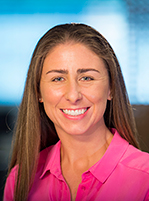 A/Prof Prue Cormie A/Prof Prue Cormie
A/Prof Prue Cormie is an Accredited Exercise Physiologist whose research and clinical work focuses on the role of exercise in the management of cancer. Her track record includes over $9 million in competitive research grant funding and over 70 refereed publications. Prue is the inaugural Chair of the Clinical Oncology Society of Australia Exercise Cancer Group and the lead author on the COSA Position Statement on Exercise in Cancer Care. A/Prof Cormie aims to enhance the lives of people with cancer through innovative research and effectively translating research into practice.
|
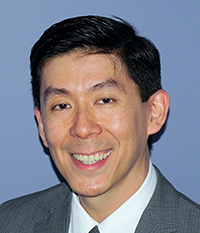 A/Prof Hui Gan A/Prof Hui Gan
A/Prof Hui Gan is a medical oncologist, currently working at the Joint Austin Ludwig Oncology Unit, Austin Health (Melbourne, Australia). He is the Medical Director of Cancer Clinical Trials at Austin Health and Co-Director of the ONJCRI Centre for Research Excellence in Brain Cancer. He graduated from Melbourne University in 1995 with a bachelor of medicine and surgery (MBBS). He became a Fellow of the Royal Australian College of Physicians in 2003. Thereafter, he obtained his PhD from Melbourne University for translational research focusing on the development of tumour-specific anti-EGFR antibodies with improved tumour targeting capability and reduced toxicity. He completed a Fellowship in Drug Development at the Princess Margaret Hospital (Toronto, Canada) in 2009 before returning to Melbourne, Australia. Currently, he is a medical oncologist at Austin Health where he specializes in head and neck cancer, primary brain tumours and phase I/II clinical trials. He holds a concurrent appointment as a senior clinical research fellow at the Olivia Newton-John Cancer Research Institute (ONJCRI) where he pursues his interest in targeted agents against cancer, particularly monoclonal antibodies against EGFR and other member of the ErbB family.
|
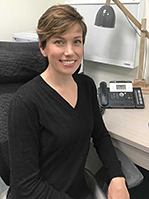 Dr Lucy Gately Dr Lucy Gately
Dr Lucy Gately is a medical oncologist at Cabrini Hospital, Melbourne, with an focus on the management of patients diagnosed with brain and breast cancer. In addition to this, she works as a Clinical Research Fellow at St Vincent's Hospital Melbourne, where she is investigating the issues faced by patients in survivorship, and the Walter and Eliza Hall Institute with a focus on translational research and organoids. She has an interest in personalized medicine, matching individual patients with appropriate treatments.
|
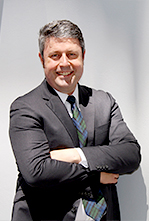 Dr Craig Gedye Dr Craig Gedye
Dr Craig Gedye is a physician/scientist, dual trained as a medical oncologist, clinical trialist and basic science researcher.
He works for patients with melanoma, brain, kidney, prostate, testis, and bladder cancer at the Calvary Mater Newcastle, and is the Clinical Research Director at the NSW Statewide Biobank.
He chairs the Renal Cancer Subcommittee for ANZUP Cancer Trials Group, and is delighted to be the Coordinating Principal Investigator for the KeyPAD and UNISON trials.
He undertakes translational and basic cancer research at the Hunter Medical Research Institute, University of Newcastle.
His research focus is on cancer heterogeneity; why treatments work for some patients but not others. This challenging research spans the translational spectrum from patient experience to basic science.
|
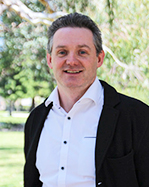 Dr Nick Gottardo Dr Nick Gottardo
Dr Nick Gottardo is a clinician/scientist based in Perth, Western Australia. He is a paediatric oncologist/neuro-oncologist and Head of the Department of Paediatric Oncology and Haematology at Perth Children’s Hospital. He is also the Co-leader of the Brain Tumour Research Programme at the Telethon Kids Institute. He undertook his neuro-oncology fellowship at St Jude Children’s Research Hospital, where he developed extensive experience in mouse model generation and preclinical testing. The Brain Tumour Research Programme focuses on testing novel therapies using mouse model systems that more closely recapitulate the human disease, in order to test the effectiveness of new treatments for childhood brain tumours, so that the most promising therapies can be taken through to the clinic. Nationally, he is the Deputy Chair of the Australian and New Zealand Children’s Haematology/Oncology Group and Chair of the CNS Tumour Sub-group of the ANZCHOG. He the Study Chair of the AIM-BRAIN PROject (Access to Innovative Molecular diagnostic PROfiling) for paediatric brain tumours. This trial will develop a personalised molecular classification protocol, using state-of-the-art technologies, to molecularly fingerprint brain tumours for all children in Australasia. Internationally, he is the Study Chair of the Children’s Oncology Group’s front-line clinical trial for WNT subgroup medulloblastoma patients, which investigates therapy reduction for this subgroup of patients who have excellent survival on current therapy. He is also a member of the International Medulloblastoma Working Group.
|
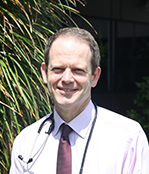 Dr Timothy Hassall Dr Timothy Hassall
Dr Hassall is the Clinical Lead of the CHQ HHS Neuro-Oncology and Retinoblastoma Services at CHQ HHS. He is also the Clinical Leader of the Centre for Child and Adolescent Brain Cancer Research Centre based at Centre for Children’s Health Research which is a collaborative group of IMB UQ, Diamantina Institute UQ, IHBI QUT and QIMRBerghofer. He is a past National Treasurer of the Australian and New Zealand Children’s Haematology and Oncology Group and the past Chair of the CHQ Medical Staff Association. He is a member of the ANZCHOG CNS subcommittee.
Dr Hassall is a graduate of the Medical School, University of Queensland and initially trained at the Royal Brisbane and Women Hospital and Royal Children’s Hospital Brisbane. He completed his Fellowship training in paediatrics and paediatric oncology at the Birmingham Children’s Hospital NHS Trust before spending 2 years in a Neuro-Oncology Fellowship at Royal Children’s Hospital Melbourne. He returned to Brisbane in 2001 to establish the multi-disciplinary neuro-oncology and retinoblastoma services at RCH, now LCCH, soon to be QCH.
Dr Hassall has championed the role of clinical trials in the management of paediatric oncology patients over the last 15 years and also the collection of biological samples in influencing a patient’s treatment and as a method of advancing basic scientific knowledge. He has been a strong supporter and contributor to the Queensland Children’s Tumour Bank.
Dr Hassall is a member of ANZCHOG, Children’s Oncology Group (USA), COGNO, CONNECT (USA) and the St Jude Children’s Research Hospital (Memphis USA) collaborative group.
Dr Hassall is the husband of a very tolerant woman, the father of two intelligent young women and a keen cyclist and sports fan who deeply laments the current state of Australian Cricket and Rugby Union.
|
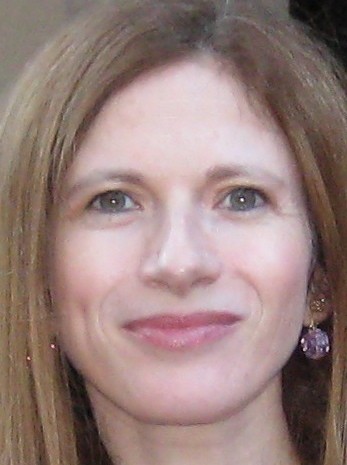 Dr Liz Hovey Dr Liz Hovey
Dr Hovey is a Senior Staff Specialist in Medical Oncology at Prince of Wales Hospital (POWH), Conjoint Senior Lecturer at UNSW and Honorary Associate of the University of Sydney. After completing advanced training at Royal Prince Alfred Hospital, she completed further post-graduate training at Columbia-Presbyterian Medical Centre, New York, NY, USA (1998-2001) during which time she was the recipient of a full scholarship to complete a Master of Biostatistics in Patient-Oriented Research at Columbia University School of Public Health (1999-2001). Prior to her 2007 appointment at Prince of Wales Hospital she was a medical oncologist at Liverpool Hospital.
Liz’s main areas of expertise and research interest are neuro-oncology, genitourinary oncology and geriatric oncology. She is the current Chair of COGNO’s SAC (Scientific Advisory Committee), as well as being COGNO’s Treasurer-Secretary/Operations Executive Member. She was a previous Chair of the COSA (Clinical Oncological Society of Australia) Neuro-oncology Group after 2 elected terms (2006-2010); Co-Founder and current Co-Chair of the NSW Neuro-oncology Group (alongside Dr Parkinson) at the NSW Cancer Institute. She was the Project Officer for the development of “Australian Clinical Practice Guidelines for the Management Adult Gliomas: Astrocytomas and Oligodendrogliomas” on behalf of Australian Cancer Network, and was on the Working Party and Co-Editor of the subsequent matching Consumer Guidelines. In 2014 she was the co-author of a chapter for the US textbook “Neuro-Oncology” (editors: Mark Bernstein/Mitchel Berger). She is an inaugural member of the Editorial Board of Neuro-Oncology Practice (published by Oxford Press) as well as being a Review Editor for “Frontiers in Neuro-Oncology” and a neuro-oncology reviewer for Asia Pacific Journal of Clinical Oncology.
In 2013 she was an invited COSA ASM plenary speaker speaking on the topic of elderly patients with glioma; in 2014 she was the keynote speaker for New Zealand Cancer Society (giving 12 talks around New Zealand on the topic of brain tumours) and an invited speaker at a WFNO (World Federation of Neuro-Oncology) Masterclass in Istanbul, Turkey. In June 2015, she presented a Neuro-oncology Oral Presentation at ASCO, presenting Part 2 results of the CABARET study on behalf of COGNO co-investigators. She was the Co-Convenor of the 2016 COGNO-ASNO ASM (& was also Convenor of the 2009 COGNO-COSA ASM).
She is the Australian CIA for the CODEL study for oligodendroglioma patients (which secured Cancer Australia/NSWCC funding) and is one of the CI’s for the upcoming Adult Medulloblastoma study (with CANTEEN funding) including participating in the International Steering Committee. She was the NSW CI on the NHMRC grant for the previous EORTC Low Grade Glioma Study
|
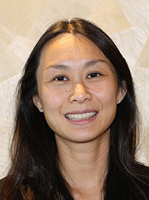 Dr Po-ling Inglis Dr Po-ling Inglis
Dr Po Inglis has been a staff specialist in medical oncology at RBWH since 2009. Though she is primarily a clinician she takes great interest in translational oncology, having obtained a BSc at Monash and working at the Hanson Centre for Cancer Research during her medical training. She has collaborated with QIMR/Dr Bryan Day in development of the brain tissue bank, characterization of EpA3 and the current early phase KB004 trial.
She has been a AYA medical lead, and in that time was mentored by paediatric neuro-oncologists, to care for young adult patients with rare paediatric tumors. She currently co-chairs the Neuro-oncology multidisciplinary meetings at the RBWH.
Breast oncology is another major focus, in collaboration with UQCCR/Dr Lakhani there are research initiatives involving breast brain metastasis and high risk breast cancer genetic platforms.
|
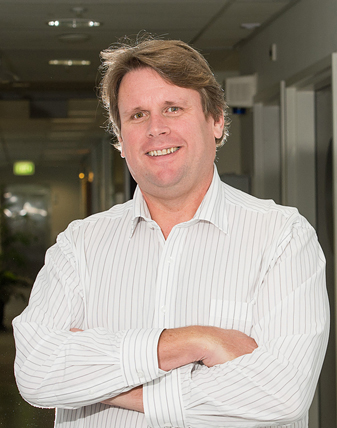 Professor Terry Johns Professor Terry Johns
Since November 2017, Prof Terrance Johns has been Professor of Paediatric Cancer Research and Program Head of the Telethon Kids Cancer Centre, where he also leads the Oncogenic Signalling Laboratory.
He completed his PhD on new therapies for melanoma in 1993 at Monash University. He then conducted his post-doctoral studies on the central nervous system, developing a new animal model that today remains the gold standard for multiple sclerosis research. In 1998, he moved to the Ludwig Institute for Cancer Research in Melbourne to head the Oncogenic Signalling Laboratory. The main focus of the laboratory was developing antibodies that target receptors important for the survival and growth of cancer, especially brain cancer. Notably, Prof Johns was a major contributor to the discovery of a brain-cancer-specific therapeutic antibody that was subsequently licensed to AbbVie. This antibody, mAb 806 (now known as ABT-414), is in phase 3 clinical trial for brain cancer patients. In 2008, Prof Johns returned to Monash University, where he continued to develop novel strategies for treating brain cancer. Alongside this work, Prof Johns is actively working with international collaborators and pharmaceutical partners to move new drugs into clinical trials for brain cancer.
Professor Johns has worked hard to bring the Australian brain cancer research community together and accelerate the drug translation process. In 2012, he founded the Brain Cancer Discovery Collaborative, an Australia-wide consortium of researchers and clinicians dedicated to ensuring that promising therapeutic discoveries are translated into the clinic for the treatment of patients with brain cancer. He has been a member of COGNO’s Management Committee since 2012 and its Scientific Advisory Committee since 2013.
|
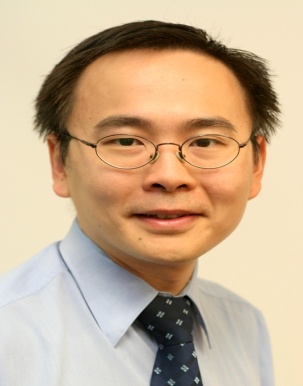 Dr Chee Lee Dr Chee Lee
Dr Chee Khoon Lee is a consultant medical oncologist with broad ranging clinical interests with a subspeciality focus on thoracic and gynaecological malignancies. He is a Staff Specialist in Medical Oncology and Director of the Medical Oncology Clinical Research Unit at St George Hospital and the Sutherland Hospital. He is a senior research fellow at the National Health & Medical Research Council Clinical Trials Centre of The University of Sydney. Dr Lee obtained his medical degree (with honours) from The University of Sydney in 2000. He completed his clinical fellowship training in internal medicine and medical oncology at St George and Prince of Wales Hospitals, and is a fellow of the Royal Australasian College of Physicians (2009). He has Master degrees in clinical epidemiology (2004), and in biostatistics (2009). He obtained his PhD from the University of Sydney in 2012 for his methodological work in the conduct of clinical trials involving biomarkers for personalising treatment in patients with advanced cancers.
Dr Lee has an active and productive record of research in clinical oncology, translational research, and cancer therapeutics. He has a unique combination of clinical and methodological experience underpinned by an advanced understanding of biostatistics. His clinical and research interests are focused on identifying and developing better strategies to personalise treatment in patients with advanced cancers. He is the small cell lung cancer co-chair and scientific advisory committee member of the Australasian Lung Cancer Trials Group. He also serves as senior member of several translational research programs: Cancer Australia Genomic Cancer Clinical Trials Initiative, and the Cancer Molecular Screening and Therapeutics Study. He is a study co-chair of four multi-center clinical trials and also a principal and co-investigator on >25 clinical trials that investigate novel therapeutic agents for lung and gynaecological malignancies
|
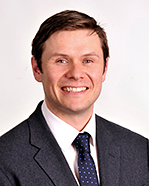 Dr Mark Pinkham Dr Mark Pinkham
Dr Mark Pinkham is a Radiation Oncologist based at the Princess Alexandra Hospital in Brisbane and a Senior Lecturer at the University of Queensland. Having graduated from Oxford University in 2005, he completed specialist training in Brisbane in 2014 and then undertook an 18-month Clinical Oncology fellowship in neuro-oncology and intracranial stereotactic radiosurgery (SRS) at the Christie Hospital, UK. He was appointed as a Staff Specialist in 2015 and is part of the Gamma Knife ® Centre of Queensland which is the first public service of its kind in Australia. His main clinical and research interests are in the treatment of diseases of the central nervous system including brain metastases and melanoma. He is clinical lead for the eVIQ brain metastases SRS protocol and Chair of the SRS working group within TROG, which aims to establish universal quality assurance standards for radiosurgery trials across Australia and New Zealand.
|
Prof Brandon Wainwright
Director, Institute for Molecular Bioscience
More detail coming soon.
|
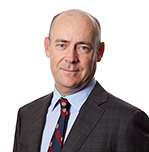 Dr David Walker Dr David Walker
Dr David Walker is a neurosurgeon and has been associated with BrizBrain&Spine since its foundation in 2005. Dr Walker completed his undergraduate medical training at the University of Queensland and undertook his advanced neurosurgical training at the Royal Brisbane and Royal Melbourne Hospitals. After this, he became a Neuro-Oncology Fellow at the prestigious Brigham and Women’s Hospital in Boston, USA, where he was also appointed a position at Harvard University. Dr Walker has special clinical interests in: neuro-oncology, low grade gliomas and spinal surgery.
|
|
|
|
|
|
|